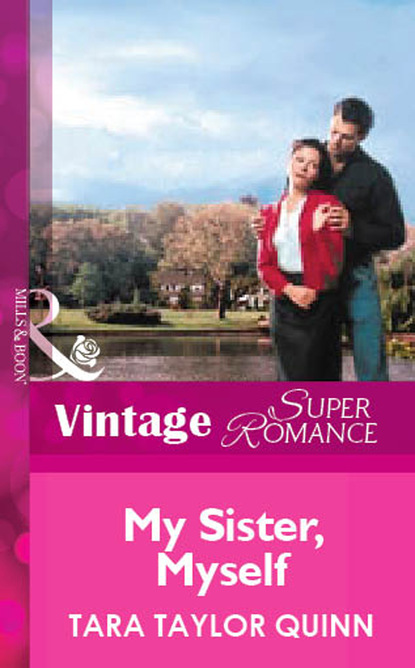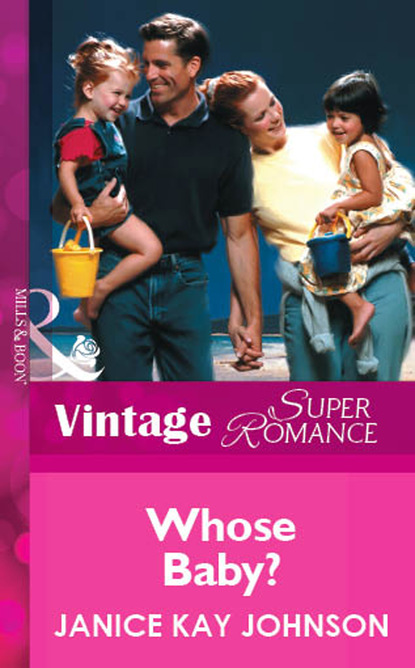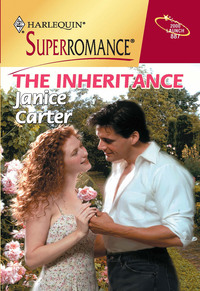
Полная версия
Summer Of Joanna

“Joanna Barnes was married to my father.”
Matt Sinclair folded his arms and stared across the parking lot. “They were married for two years. I was only seventeen at the time. Pretty much out of the picture, thank God.”
“Obviously you didn’t care for her,” Kate said.
“Frankly, no. Sorry if that offends you.”
Kate inhaled deeply. She hadn’t come to Joanna’s funeral for any kind of confrontation. All she’d wanted to do was pay her last respects to the woman who’d once saved her life.
“I do—did—care for Joanna,” she said, “and I don’t believe in speaking ill of the dead. Especially at a funeral.” She brushed past him to head for her car.
“Those are fine sentiments,” he replied, raising his voice as she kept walking. “And you’re welcome to them. But Joanna Barnes ruined my father. I’ll never forgive her for that.”
Matt watched her car zip out of the parking lot and disappear down the quiet, tree-lined road. He didn’t like the uneasy feeling in his gut when he recalled the hurt in her eyes. As if she couldn’t comprehend why he was attacking somebody she cared about.
But that somebody was Joanna, he reminded himself. The last person on earth to deserve such fierce loyalty.
ABOUT THE AUTHOR
Reading and writing have been lifetime passions for Janice Carter. She wrote her first novel at age twelve in school notebooks. As a teenager, she wrote daily serializations of romance novellas for her classmates. “Publishing a novel was always a dream,” she recalls. “But for a long time, the business of living got in the way of writing. I traveled around the world and saw many exotic sights. I married and had two amazing daughters. There was little opportunity or inclination on my part to write until one autumn I impulsively decided to take a romance writing workshop at a local college. I was hooked! That year I began to write my first romance novel and sold it two years later to Harlequin Intrigue.”
Janice lives with her husband and two daughters in Toronto, Ontario, where—during the year—she works as a teacher-librarian in an elementary school. Her summers are spent on a small island on Lake Ontario where she has her morning coffee and watches great blue herons fish off the rocks. Then she adjourns to her “writing room” and indulges in her favorite occupation.
Books by Janice Carter
HARLEQUIN SUPERROMANCE
593—GHOST TIGER
671—A CHRISTMAS BABY
779—THE MAN SHE LEFT BEHIND
887—THE INHERITANCE
Summer of Joanna
Janice Carter

For my beautiful daughters, as always
ACKNOWLEDGMENT
With much appreciation to my editor of many years, Zilla Soriano, for her intuitive good sense and gracious guidance.
CONTENTS
CHAPTER ONE
CHAPTER TWO
CHAPTER THREE
CHAPTER FOUR
CHAPTER FIVE
CHAPTER SIX
CHAPTER SEVEN
CHAPTER EIGHT
CHAPTER NINE
CHAPTER TEN
CHAPTER ELEVEN
CHAPTER TWELVE
CHAPTER THIRTEEN
CHAPTER FOURTEEN
CHAPTER FIFTEEN
CHAPTER SIXTEEN
CHAPTER SEVENTEEN
CHAPTER EIGHTEEN
CHAPTER NINETEEN
CHAPTER ONE
SHE COULDN’T TAKE her eyes off the coffin.
It sat, resplendent beneath a spray of leaves and white lilies, in the very middle of the raised dais in front of the altar. Kate closed her eyes, fighting the pain that swelled up from the pit of her stomach. Just get through this, she reminded herself. Then give in to grieving for Joanna when all the questions have been answered, especially those beginning with why. Until then, stay calm, in control and, most of all, stay angry.
The organist segued into another interlude as mourners continued to slide into the pews. Kate raised her head, glancing left to the center aisle. The church was filling up. Joanna would be pleased. Or so Kate imagined. For how much could she say about someone she hadn’t seen for nineteen years? Kate lowered her head again and squeezed her eyes shut, bringing back that sultry July day at Camp Limberlost. The day she’d met Joanna Barnes.
THE RAFT WAS TOO FAR AWAY. Kate knew that from the start, but it almost seemed to beckon to her, a refuge from the gang of kids lying in wait down by the canoes. If she turned around to confront them, she’d probably get into another fight and she’d already had her last warning. One more and she’d be put on a bus and sent back to the city. Which wasn’t such a bad thing, she figured, since she hated the place, anyway. But there was only her foster mother and little kids, including a new baby, at home. The rest of the summer was already booked for baby-sitting.
So the raft it would be, she decided, wading into the shallow water of Whitefish Lake. But distances were deceiving in the midday glare, and Kate wasn’t an experienced swimmer. Less than a yard away from the raft, she could barely keep her head above the water. Her legs seemed like lead weights, pulling her down, as her arms flailed the surface.
“For heaven’s sake, take my hand so I won’t have to come in after you.”
The command—really a peeved drawl—came from the raft, and Kate barely caught a glimpse of a bronzed arm reaching toward her as she went down for the second time. Her own arms kept thrashing but contact was made. A strong grip pulled her to the raft’s edge where a beautiful face, framed by an ear-length swoop of jet-black hair, loomed over her.
An angel’s face, Kate was thinking as she clung to the ladder at the side of the raft, and was suddenly glad she’d gone to confession before leaving for Limberlost.
“Catch your breath before you climb up,” the woman said. “I’ve just slathered myself with sunscreen, and I don’t want it to come off if I try to haul you out.” Then she disappeared from the edge and shifted toward the center of the raft.
Kate waited until she knew she could pull herself up on her own. When she finally rolled onto the warm, dry surface, she lay on her back, her chest heaving.
After a moment, the woman raised her head from the paperback she’d been reading and said, “I’m Joanna Barnes and you must be one of the Bronx kids.”
Kate shot up. “My name is Kate Reilly and I’m not one of the Bronx kids. I live in Queens.”
Joanna Barnes shrugged, turning her attention back to her novel. “Whatever,” she said.
THE ORGAN SWELLED to a crescendo as the minister walked toward a podium a short distance from Joanna’s casket. Kate rose with the others, reaching automatically for a hymn book and the page the minister directed the congregation to. But she could still see Joanna sprawling on a beach towel, apparently oblivious to the eleven-year-old kid gawking at her.
“ARE YOU RELATED to the people who run this place?” Kate asked when she’d caught her breath.
“My parents,” Joanna mumbled from behind her book.
Kate tried to connect the white-haired plumpish couple she’d met her first day with the beautiful woman in the bikini, but couldn’t quite do it. She swiped at a drop of water hanging from the tip of her nose. “So do you work here, then?”
The novel came down. “Hardly.” There was the faintest of smiles.
“I haven’t seen you before and I’ve been here a week.”
The crimson smile widened. “I don’t exactly hang out with the campers. But I used to work here when I was a kid. My parents have owned Limberlost for twenty years.”
“Did you like coming here when you were a kid?”
“We lived here year-round in those days.”
“You lived here?”
A peal of laughter burst from Joanna. “For several years—until I finally made my escape.”
“That’s what I’d like to do,” Kate muttered bitterly. “Make my escape.”
“It’s not that bad here…or is it? I’ve forgotten what it’s like to be a kid in a godforsaken place like Limberlost.”
“The place itself isn’t that bad,” Kate admitted. “And neither are the counselors, except for Mary Lou Farris—or the ferret, I call her. Your parents seem pretty nice,” she added, not wanting to offend the person who’d saved her life.
“Then it’s the other kids,” Joanna guessed.
Kate nodded. “They all knew one another before they came here. And I’m the only one from Queens.”
Joanna shook her head. “Kids can be mean. Usually Mom and Dad try to get a mix from all over.”
“If I’m lucky, they’ll send me home soon, anyway.”
“You miss home that much?”
Kate pictured her foster mother walking wearily around the cluttered house, rocking the baby and snapping orders left and right. She herself would be chasing the two-year-old away from the family cat. She’d been in that particular foster home almost four months.
“No,” she finally mumbled.
“Maybe even Limberlost can look good compared to other places—and other people.”
Kate gave that some thought before asking, “Are you on a holiday here, too?”
“Not really. More like on leave. At the moment I’m unemployed and between marriages,” she said. “What my dad calls footloose and fancy-free.”
Kate wasn’t certain what the phrase meant, but she thought it a good one for the woman sitting next to her. The painted fingernails and matching toes seemed to go perfectly with the splashes of color on her bikini. Up close, Kate could see that her makeup was also perfect, which made her wonder how she’d made it to the raft without getting wet. Her eyes drifted past Joanna and spotted, for the first time, the tip of a paddleboat tied to the far side of the raft.
They sat in silence for a while. Then Joanna put her book down and, turning to Kate, said, “I’m sorry about lumping you in with those other kids. I can see now that you’re an entirely different type.”
That was when Kate decided Joanna Barnes was an okay person—for an adult.
THE MINISTER’S resonant baritone drew Kate from the past. He’d begun to speak about Joanna, and in spite of herself, Kate’s attention began to wander. Mainly because he wasn’t talking about the woman she’d known briefly for a week when she was eleven years old. He referred to the well-known fashion writer and columnist, world traveler, friend of many and wife. Kate’s ears pricked up at that. Had Joanna married again?
She peered discreetly around, trying to guess which somber-suited man in the congregation had been Joanna’s latest husband. Trouble was, the small church was full of black-suited men. In fact, she just realized, there seemed to be more men than women.
She wondered briefly if any of Joanna’s family were here, then remembered the reference in the obituary to Joanna’s late parents. She frowned, trying to recall their faces. The minister coughed, then, lowering his voice, alluded to the cause of Joanna’s death. He knew every euphemism for suicide, Kate thought. But his oblique references only revived the anger she’d been feeling since she’d read Joanna’s obituary in the New York Times three days before. No way, she’d fumed, would Joanna Barnes commit suicide. Not in a million years. And especially not just before their promised reunion—a promise made nineteen years before at Camp Limberlost.
AFTER THAT FIRST MEETING, Kate found herself swimming out to the raft every afternoon. Those few hours had saved Kate’s summer for her. The remaining week at camp flew by. Joanna talked about growing up in the country, laughing at Kate’s reference to it as “wilderness.” She brought a cooler pack with pop and snacks out to the raft, letting Kate indulge in the junk food forbidden at camp.
“I plan to head for Manhattan soon,” Joanna said, after revealing that she’d had her first lucky break—a fashion article published in a local newspaper. “If I’m ever going to make it in this business, that’s the place to be.”
“Maybe I could visit you,” Kate suggested impulsively.
Joanna smiled and murmured, “Maybe.”
Kate’s excitement fizzled. Joanna’s reply had been the first typical adult comment she’d made all week. Kate figured she might as well have added, “But not likely.”
Then Joanna leaned over and said, “Look, I can’t make promises like that because I’ve no idea where my life is going to go from here. I’m going to be thirty years old this September and you’re…”
Kate’s heart sank as she waited for Joanna to say “just a kid.”
But instead, she’d scrunched up her forehead and said, “What? Twelve?”
“I’ll be twelve on August 15.”
“There you go. I was close enough. Anyway, I guess I don’t have to spell it out for you—the big difference in our ages. You’re on the verge of becoming a teenager…sort of, and I’m on the verge of—”
“Becoming a woman?” Kate suggested.
Uproarious laughter at that. “Let’s say, a more mature woman. Going into my thirties, I hope not to repeat the mistakes of my twenties.”
“I can hardly wait until I’m the same age as you and I can go anywhere and do anything.”
Joanna nodded. “It’s pretty good, believe me. And what you gotta remember is, you can also be anything. Don’t forget that one.”
They sat without talking again for a long while. The sun was lower in the sky now and the west side of the bay was in shade. “It must be past five,” she said. “My turn to help set up for dinner.”
As she edged toward the ladder on the far side of the raft, Joanna suddenly put out a hand. “I hate to tell you, Kate, but I may even be leaving tomorrow sometime. Something’s come up.” She frowned and glanced away for a second as if she didn’t want Kate to see her face. “But I just had a great idea,” she enthused, turning back to Kate with a big smile.
Kate’s insides churned. “What?”
“Well, since it’s unrealistic for us to expect to get together on a regular basis, how about if we promise to meet someplace—we can decide where later—exactly nineteen years from today, July 14. You’ll be thirty—just about my age now. You can fill me in on how your life has turned out and I’ll…well, I don’t even want to think about it, but I’ll be looking at the big five-oh coming up. We’ll both be dealing with an age milestone. Sound like a good idea?”
“Yeah! But…what if one of us forgets?”
Joanna pursed her lips thoughtfully for what seemed a long time. Then she said, “We won’t because I’ll send you a reminder card every year—like a countdown.”
“Do you think you can remember to do that?”
“I promise you, Kate Reilly, that if I get one thing in my life together, it will be that. Okay?”
“How will you find me?”
“Jeez, you’re brimming with good questions. I knew from the start you were a smart kid.”
Kate beamed.
“Let me see…you give me your address before I leave and as soon as I get to New York in September, I’ll set up a postal box number for you. I’ll pay for it until you reach the age of…what? Twenty? Then you can pay on your own.”
“Nineteen,” Kate said. “Because I’m going to make it on my own before I’m twenty.”
“That’s what I want to hear! Okay, then. Deal? Shake?” Kate stuck out her hand.
YOU PROMISED, JOANNA, and since you’ve been keeping that promise for the last nineteen years, I know you wouldn’t have let anything stop you from meeting me last week.
The organist swelled into the next hymn as everyone stood. Kate now had an opportunity to scan the congregation in front and to the left of her. She thought she recognized a few people in amazing outfits. Perhaps she’d seen them in some of the many news clippings she’d saved over the years—articles and pictures featuring Joanna and various fashion-world celebrities.
She’d acquired quite a collection. It was one of the things she’d considered taking to their reunion, to show Joanna how she’d tracked her life through the years. But then she realized how pathetic that might look—as if she hadn’t achieved a life of her own. And she had. A very satisfying, rewarding life, though teaching elementary school was probably a bit tame by Joanna’s standards. But not bad, Kate thought, for a kid who’d been shuffled from one foster home to another.
After the hymn ended, the minister rose to introduce the eulogist—Joanna Barnes’s husband, Lance Marchant. Kate straightened. So, Joanna had remarried. Was this man number three or four? she wondered. A tall man in a navy pinstriped suit stood from a front pew and headed up onto the dais, pausing to place the palm of his hand on the end of the casket. Someone behind Kate blew a nose.
Joanna’s husband was a handsome, white-haired man who looked very familiar. Lance Marchant. The name rolled around in her mind, teasing her memory. Where had she seen him and why hadn’t she known about the marriage? Especially given her habit of snipping any mention of Joanna in the papers. She might have missed the announcement, or perhaps, for some reason, Joanna had kept the marriage under wraps. Another piece to add to the puzzle that was growing around Joanna Barnes.
Lance Marchant cleared his throat, cast a quick glance at the casket and began to speak. As eulogies went, Kate assumed his speech was the standard fare. Not that she was any expert, since this was only the second funeral she’d ever attended. He did refer to their brief marriage of less than a year, but claimed to have known Joanna Barnes almost twenty. Kate’s antenna rose at this. If she herself had first met Joanna nineteen years ago, then he must have known her earlier.
He continued extolling the talents and—with humor—the foibles of Joanna Barnes. It was an eloquent speech, Kate had to acknowledge. But that was the problem. Instead of a tribute delivered by a grieving husband, it had come across as a piece put together by some clever speechwriter.
When he finished, Lance Marchant stepped down from the dais and suddenly stumbled. Kate’s heart leapt; she wondered if he was going to topple onto the casket. But he caught himself, placing his hand on the gleaming oak surface and staring down silently for a moment, as if communing with his wife one last time. Kate squirmed. She couldn’t think why, but the scene embarrassed her.
Lance raised his head and walked down the aisle out of the church. As he passed Kate’s pew, she caught a closeup of his face—flushed now, jaw set in a tight, steadfast line. The other mourners followed in hushed respect. Kate sat until the last person passed. Then she stood and, on rubbery legs, made her way to Joanna’s casket.
There was so much she wanted to say, but finding the starting point was difficult. The whole purpose of their getting together again on the nineteenth anniversary of Kate’s stay at Camp Limberlost had been to compare the courses of their lives. Joanna Barnes had certainly not been a substitute for the family Kate never had, but she’d represented a kind of continuity in her life. No matter how many foster homes or bad times Kate had gone through, she’d always had that annual card to look forward to. And true to her word, Joanna had never forgotten, although once she’d been late.
Kate touched the casket, then flashed to the eulogy scene. She quickly withdrew her hand. It was too late to talk to Joanna now, and here wasn’t the place. She started to turn away when four undertakers from the funeral home filed through a side door.
“Are you finished, ma’am?” one of them asked quietly.
Kate could only nod. The tears she’d tried to hold back welled up. She dabbed at her eyes with a tissue. The men bent to release the wheel brakes of the stand the casket rested on and lifted up the cloth that skirted it.
“Where…where will she be buried?” Kate asked.
“Mrs. Marchant is going to be cremated. We’ll be taking her back to the funeral home from here.”
“I see. Thank you,” Kate murmured, and averted her face, unable to watch Joanna Barnes wheeled out of her life forever. She closed her eyes, listening to the muted rumble of the casket as it rolled along the carpeted aisle. There was the sound of a door opening and, seconds later, thudding shut. Silence roared through the empty church.
Kate clutched the back of a pew to steady herself.
“Can I get you something?” a voice asked from behind.
She turned and looked up, making eye contact with a man who seemed to tower over her. He wasn’t smiling and his eyes were serious.
“Something?” she echoed. “Like what?”
A single eyebrow on his pale face rose at her question. “Uh, well, since this is a church…say, a glass of water?”
“Thanks, but I’m not sure you could even get a glass of water here. Everyone’s gone.”
He shook his head. “They’re all outside, being social the way people have to behave at a funeral. Maybe even talking to reporters.”
“Reporters? Here?”
“A couple, anyway. Too bad Joanna can’t talk to them herself—she’d be in her element, wouldn’t she?”
Kate stiffened at the edge in his remark. “I wouldn’t really know,” she said, and began to walk down the aisle toward the open front doors of the church. She heard him follow.
“Sorry,” he said. “That didn’t come out the way I intended. Just that, you know how Joanna loved the limelight.”
He caught up with her. “Are you a relative of hers?”
“No.” Kate kept walking.
“Then…a close friend?”
“Not really.”
As she reached the entryway, he reached out his hand to stop her. She swung around, staring down first at the hand on her forearm and then up into his face. A nice face. Nice enough to be in some of the fashion articles Joanna used to write. Maybe he had been, she thought. There was curiosity in the face, too. But the eyes—gray, she decided—were intense.
“Not really?” He repeated. Then he frowned. “You’re not a reporter, then?”
“No, for heaven’s sake. I met Joanna a long time ago. End of story.” She turned her back on him and headed for the door.
“Sorry again,” he called after her. “I’ve been trying to find someone she was close to.”
“I can’t help you there, but her husband is probably right outside.”
“He’s the last person I’d talk to.”
That stopped her. Kate pivoted around. “You’re not a relative?”
“No.”
“Friend? Colleague?”
“Hardly.” The edge returned to his voice.
The emotional fatigue of the past few days suddenly overwhelmed Kate. She was tired of this little game and only wanted to leave the church and go home. “Then I suppose neither of us has any relevant information to exchange.” Kate swung around and stepped out the church door into the glare of a July afternoon.
Lance Marchant was holding court at the foot of the steps leading up to the church. He craned his neck as Kate exited, frowning momentarily before turning his attention back to the small group of reporters interviewing him. As Kate passed, she became aware of a brief flurry of interest from the reporters, but it quickly evaporated when Joanna’s husband failed to acknowledge her.
Kate had to smile. So much for her fifteen seconds of fame, she thought. Then she remembered why she was there—and why the reporters were there. Walking briskly through the knots of people milling on the church lawn, she headed with grim determination to the rental car parked in the lot beside the church.
The day was already gearing up for more record heat. Kate was grateful for the air-conditioning that had made the drive to Westchester more tolerable. When she’d read that Joanna’s funeral would be held outside New York City, she’d decided to rent a car rather than travel by public transit. She hesitated at the entrance to the lot, scanning it for the small white Escort.






